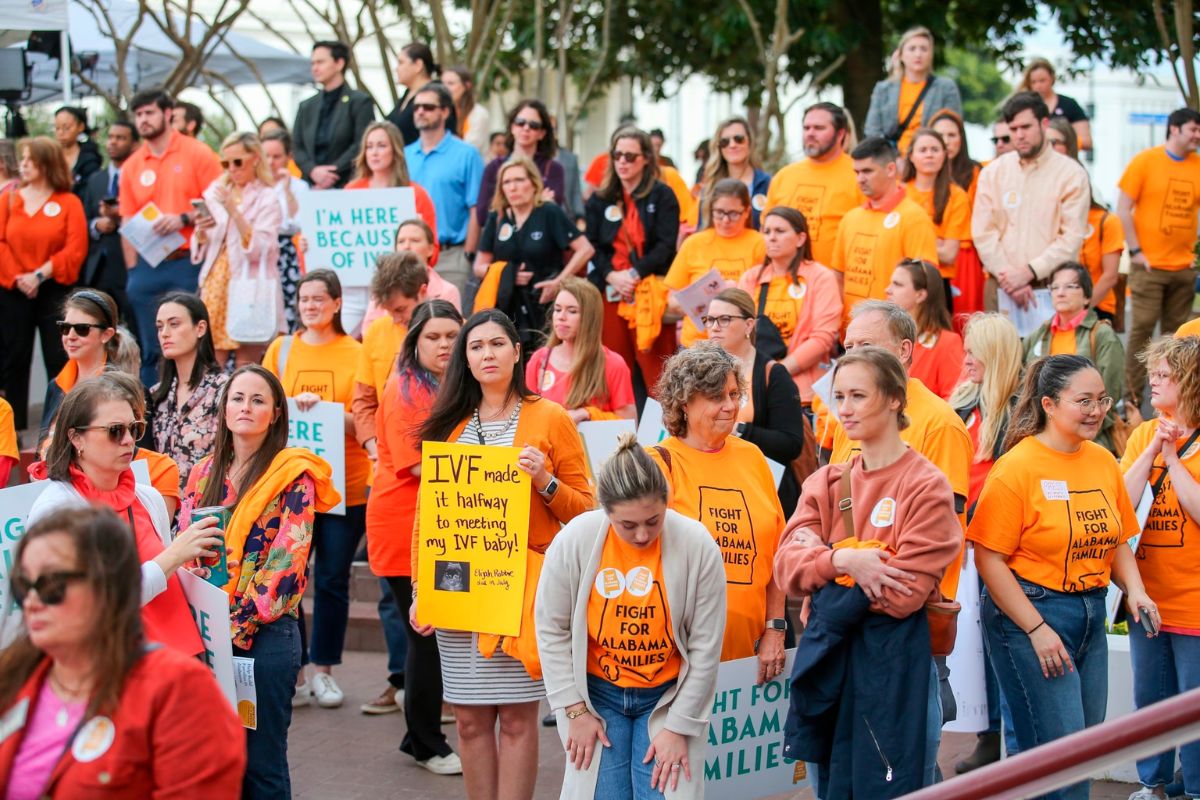Medical Experts Urge Alabama Court: In a recent development that has sparked considerable controversy within medical and legal circles, prominent medical experts are urging the Alabama court to reconsider its decision regarding frozen embryos.
The case, which revolves around complex ethical and legal implications, has drawn attention from medical associations, prompting a call for a critical review of the ruling.
With implications that extend far beyond individual parties involved, the plea for a reevaluation raises questions about the broader societal impact and ethical considerations surrounding this sensitive issue.
Medical Associations’ Urgent Plea for Rehearing
Promptly after the controversial ruling treating frozen embryos as children, the Medical Association of the State of Alabama and the Alabama Hospital Association jointly submitted a compelling brief urging the state Supreme Court to reconsider and grant a rehearing in the pivotal case. The plea emphasizes the severe repercussions of the initial ruling, highlighting the detrimental impact it has had on the medical community and aspiring parents in Alabama. The medical associations express deep concern over the uncertainty generated by the decision, which has resulted in a halt on certain fertility treatments, thus depriving individuals of the opportunity to start families.
The brief underscores the urgent need for a rehearing to rectify the implications of the ruling and restore clarity and balance to the legal treatment of frozen embryos. The ambiguous classification of embryos as children has created a challenging situation for medical professionals, casting a shadow of doubt over established practices in assisted reproductive technology. The medical associations stress the importance of revisiting the case to mitigate the distress caused by the ruling and safeguard the interests of both patients and healthcare providers.
Alabama Supreme Court’s Controversial Ruling
Following the Alabama Supreme Court’s recent ruling equating embryos to children in wrongful death lawsuits, the legal landscape surrounding reproductive rights and medical practices has been significantly impacted, raising concerns about potential civil liabilities for fertility clinics.
The controversial decision stems from a case where three couples were granted the right to pursue wrongful death lawsuits for their ‘extrauterine children’ following the destruction of their frozen embryos in a storage facility accident. This ruling has sparked debates about the implications of treating embryos as if they were children or gestating fetuses, challenging long-standing norms in the field of reproductive rights.
The court’s decision has set a precedent that could have far-reaching consequences, potentially affecting how fertility clinics operate and the legal protections afforded to embryos in similar situations. As legal experts and ethicists continue to dissect the ruling, the implications of this controversial decision are likely to reverberate throughout the medical and legal communities, prompting a reassessment of existing laws and practices.

Legal Challenges and Legislative Response
Amidst the legal challenges sparked by the Alabama Supreme Court’s controversial ruling equating embryos to children in wrongful death lawsuits, stakeholders are actively engaged in proposing legislative measures to address the implications for fertility clinics and the broader legal landscape surrounding reproductive rights.
The defendants in the lawsuits, The Centre for Reproductive Medicine and the Mobile Infirmary, have filed a rehearing request with the court, arguing that the decision conflicts with existing state laws. Alabama lawmakers are also stepping in to mitigate the effects of the ruling by considering new legislation to protect clinics from similar lawsuits in the future. The proposed measures aim to clarify the legal status of embryos in wrongful death cases and provide guidance for healthcare providers in handling such sensitive matters.
As the legal battle unfolds, the intersection of reproductive rights and the law continues to be a focal point of debate and legislative action in Alabama.
- The rehearing request filed by The Centre for Reproductive Medicine and the Mobile Infirmary underscores the legal complexities arising from the court’s ruling.
- Alabama lawmakers are actively working on new legislation to address the implications of the controversial decision.
- The proposed legislative measures seek to provide clarity and protection for fertility clinics facing similar legal challenges.
News in Brief
Medical associations, including the Medical Association of the State of Alabama and the Alabama Hospital Association, are urgently appealing for a rehearing in the controversial frozen embryo case. The Alabama Supreme Court’s ruling, equating embryos to children in wrongful death lawsuits, has prompted concerns from the medical community about the potential impact on fertility treatments and reproductive practices. The medical associations stress the need for a reconsideration to rectify the implications of the decision, emphasizing the uncertainty it has created for aspiring parents and healthcare providers. Meanwhile, legal challenges are underway, with defendants filing rehearing requests, and Alabama lawmakers proposing legislative measures to address the complex issues arising from the court’s ruling.
ALSO READ: Alabama Passes Bills Safeguarding In Vitro Fertilization

